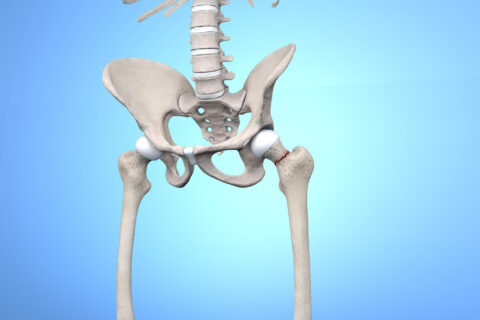How Knee Surgery Works
Knee Surgery in Grapevine, TX
The Process of Orthopedic Knee Surgery
Texas Institute of Orthopedic Surgery & Sports Medicine provides knee services and treatment options to patients in Grapevine, TX and throughout the surrounding areas. A highly-qualified orthopedic surgeon from our team will give you an expert evaluation and treatment plan. With numerous years of experience providing premier care and services to our patients, you can rest assured you’re in good hands when you choose Texas Institute of Orthopedic Surgery & Sports Medicine.
The Different Types of Knee Surgery
When it comes to knee surgeries, there are several different types. When the knee is damaged, sometimes surgery is the best solution. The different types of knee surgery include the following:
- ACL Reconstruction Surgery – The anterior cruciate ligament (ACL) can become partially or entirely torn, especially during high-impact sports. It can be repaired and stabilized to prevent further injury to the knee. This type of surgery, called arthroscopic surgery, can help restore the knee’s stability. If arthroscopic surgery is recommended, it usually is scheduled for several weeks after your injury has occurred to allow for the swelling to reduce.
- Microfracture Surgery – During this surgery, an orthopedic surgeon will repair your damaged knee cartilage by creating small holes in your bone to stimulate new cartilage growth. This may be the ideal surgery if there’s a small area of damaged cartilage and not a sizable one.
- Kneecap Surgery – This surgery is usually performed with an orthoscopy. Kneecap surgery may be performed when the kneecap has been damaged, usually due to an injury. If your knee is in pain or hinders your movement, this surgery can repair it depending on your specific injury.
- Partial Knee Replacement – During this surgical procedure, only the damaged portion of the knee is replaced with artificial materials. The most common reason for the surgery is extensive damage to a portion of the knee from osteoarthritis.
- Complete Knee Replacement – If the damage to the knee is widespread, a total knee replacement may be the most appropriate option to relieve pain and restore function.
How Knee Replacement Surgery Works
When nonsurgical treatments are no longer working for you, partial or total knee replacement surgery may be the next step. This type of surgery is one of the most successful procedures in modern medicine as it has countless benefits, including the relief of pain, correction of leg deformity, and more. There are four basic steps:
- Preparation of the Bone – Damaged cartilage at the end of the femur and tibia is removed, along with a small amount of underlying bone.
- Positioning of the Implants – The removed cartilage and bone are replaced with metal components that recreate the joint’s surface.
- Resurfacing the Patella – The undersurface of the patella (kneecap) is cut and resurfaced. Depending on the case, the surgeon may choose not to resurface the patella.
- Inserting a Spacer – A medical-grade spacer is then inserted between the metal components to create a smooth, gliding surface.
The Benefits of Knee Surgery
Knee surgery can provide patients with many benefits, including pain relief, improved mobility, and overall better life quality. This kind of surgery can also restore one’s ability to engage in various activities, such as walking, biking, and swimming. The benefits of knee surgery include:
- Pain Relief – If you feel pain in your knee while performing low-impact activities such as walking, running, or even standing, knee surgery can effectively alleviate this pain.
- High Success Rates – The various types of knee surgery see high patient success and satisfaction rates. Additionally, most knee replacements can successfully last between 15 and 20 years.
- Improved Mobility – Knee pain can be disabling, but knee surgery can restore and improve mobility. Knee pain doesn’t have to be a sentence for a sedentary life. Knee surgery can help.
- Good Treatment Response – Patients with chronic knee pain and inflammation can benefit highly from knee surgery, as it will simultaneously reduce their need for medications, which the long-term use of can cause complications.
Contact Us Today About Knee Surgery
If you’ve been living with chronic knee pain, please know you don’t have to. Texas Institute of Orthopedic Surgery & Sports Medicine provides professional knee surgery options for patients with chronic knee pain. Knee surgery may effectively reduce one’s need for medications, physical therapy, and other surgeries. Contact us today to schedule a consultation with our expert team.


